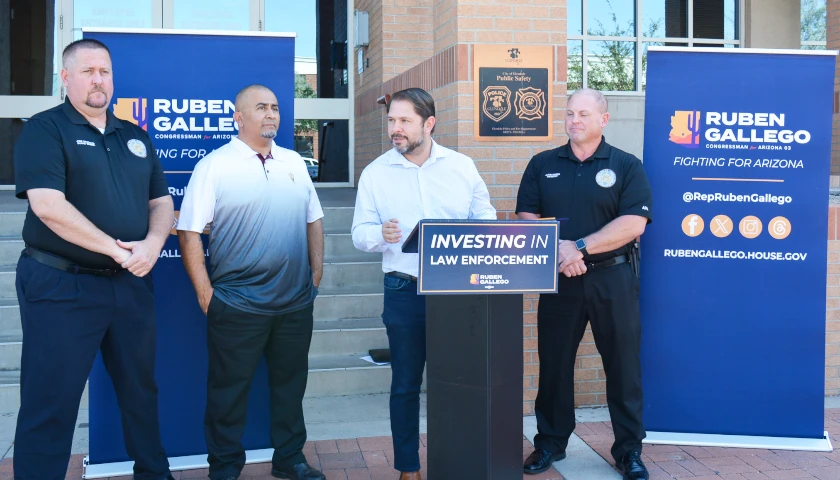A Tennessee state representative is celebrating this week as a bill that he sponsored enacting harsher penalties for violence against police officers took effect Monday.
The law, called The Back the Blue Act, which was sponsored by State Representative Kip Capley (R-Summertown), makes assault on a police officer a Class E felony. Previously, it was a Class A misdemeanor.
He told The Tennessee Star Tuesday that the bill stems from increased anti-police sentiment.
“As anti-police rhetoric increases and calls to defund the police endure across the country, Tennessee will keep doing what’s right by supporting our law enforcement and working to improve public safety,” Capley said. “I was proud to sponsor this bill and I look forward to continuing to find ways to back the blue.”
In a press release, he said he proudly stands with the police.
“Tennessee is proud to stand with our fantastic law enforcement community,” Capley (pictured above) said. “The Back The Blue Act sends a clear signal that police in Tennessee will always have the support and resources required to safely do their jobs. I thank my colleagues and the governor for their support of this important bill, and I thank every police officer in the state who works hard each day to make his or her community safer.”
The release defines assault as “knowingly causing bodily injury or knowingly causing offensive physical contact, including spitting, throwing or transferring bodily fluids, human pathogens or waste onto a law enforcement officer.”
The bill protects Tennessee Peace Officers Standards and Training (P.O.S.T.) certified officers, Tennessee Highway Patrol troopers, Tennessee Bureau of Investigation (TBI) agents, Tennessee Wildlife Resources Agency officers, park rangers employed by the Tennessee Department of Environment and Conservation, and capitol police officers.
The law provides that punishment for assaulting a police officer carries a mandatory fine of $10,000 and a mandatory minimum sentence of 60 days in prison, with no chance for parole.
Punishments for Class E felonies can be even harsher, with prison sentences up to six years, according to Justia.
By comparison, a Class A misdemeanor is punishable by up to a year in prison, maximum.
The bill also makes it a Class A misdemeanor to assault a first responder, defined as a person “who responds to calls for emergency assistance from a 911 call, ·but does not include a law enforcement officer.”
– – –
Pete D’Abrosca is a reporter at The Tennessee Star and The Star News Network. Follow Pete on X/Twitter.






Now all that has to be done is to get district attorneys who will enforce the law.